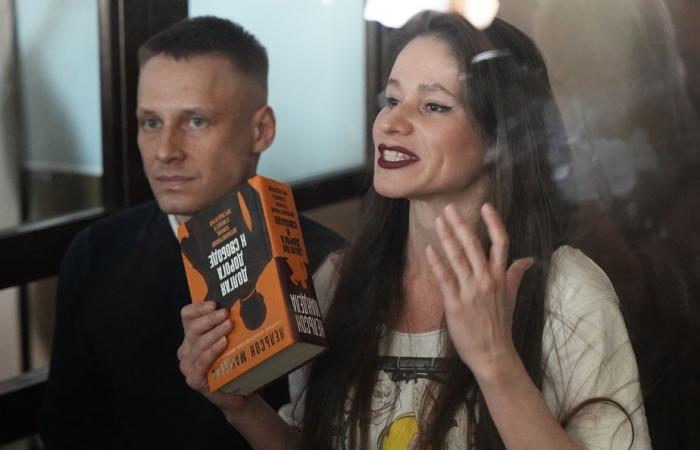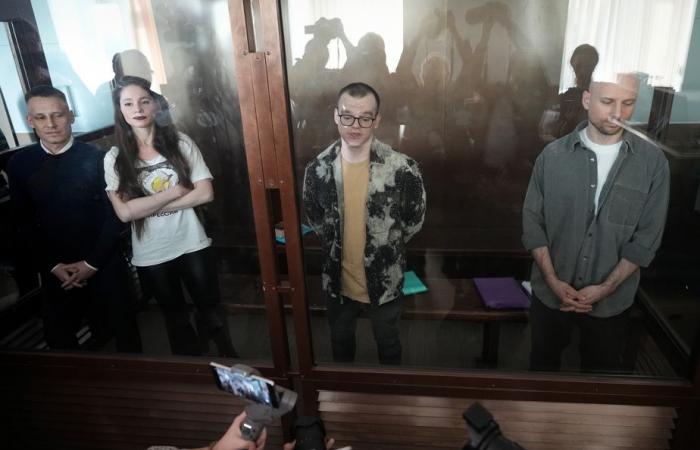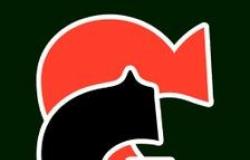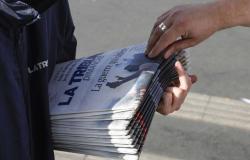The trial of four Russian journalists, accused of having collaborated with the organization classified as “extremist” of the opponent who died in prison Alexeï Navalny, began on Wednesday in Moscow in a context of exacerbated repression in the country.
Updated yesterday at 11:28 a.m.
Shortly after the trial opened, Judge Natalia Borisenkova ordered that it would be held behind closed doors, a common practice for cases of this type in Russia.
Mr. Navalny’s movement, President Vladimir Putin’s number one opponent until his death in custody in February, has been methodically stamped out in recent years, and his allies and supporters have been driven into exile or incarcerated.
Russian justice is now targeting less direct collaborators, and in September put in the dock three lawyers who defended Alexeï Navalny. As well as, since Wednesday, four journalists accused of having worked for his anti-corruption organization (FBK) classified “extremist” and banned in 2021.
This case concerns photojournalist Antonina Kravtsova, who worked under the name Antonina Favorskaïa and very regularly covered the trials of Alexei Navalny for SOTAvision, one of the last media outlets documenting the repression from Russia itself.
“Darkness”
On February 15, she filmed the last video showing Alexeï Navalny still alive during a hearing, the day before his death, while he appeared by video link from his Arctic prison.
She was then arrested on March 17, a few hours after placing flowers on the opponent’s grave. After spending ten days in detention, she was arrested again as soon as she left prison.
Speaking to the press before the start of the trial, Antonina Kravtsova said: “Remember, the darkness that surrounds us will not last forever. There is always hope.”
“I want to believe that we will see the country that Alexei (Navalny) dreamed of,” she added.
Two other defendants are reporters Sergei Karelin and Konstantin Gabov, accused of participating in the creation of videos for Navalny’s team. The first has collaborated in the past with the Reuters agency and the second with the Associated Press.
PHOTO ASSOCIATED PRESS
Journalists Konstantin Gabov, Antonina Kravtsova, Artiom Krieger and Sergueï Kareline
Sergei Karelin, who has Israeli nationality, was arrested during a trip to northern Russia.
His sister, Olga Karelina, judged that the public was “afraid” to come and watch the journalists’ trial. “It’s understandable,” said this 39-year-old architect.
“Leave Russia!” »
The fourth accused is Artiom Krieger, a SOTAvision journalist also accused of having collaborated with FBK. He was previously detained for eight days in September 2022 after being arrested while covering a demonstration against military mobilization.
“Don’t play with fate. Leave Russia! “, he told journalists. “Anyone can end up in prison for any reason. »
He then criticized the judge’s decision regarding the closed session, saying that it was a process worthy of a “totalitarian regime”.
Artiom Krieger is the nephew of an opponent of the conflict in Ukraine and critic of Vladimir Putin, Mikhail Kriger, sentenced in 2023 to seven years in prison for “apology of terrorism” and “public incitement to extremism” on the internet.
Accused of “extremism”, the four journalists face up to six years in prison.
The Russian authorities have increased pressure on the last independent and foreign media in Russia in recent months, against a backdrop of widespread repression of voices critical of the offensive in Ukraine launched in February 2022.
Several Russian journalists have received heavy sentences in recent years on various charges.
In July, Russian justice also sentenced a foreign reporter, Evan Gershkovich, of the Wall Street Journal, to 16 years in prison for charges of “espionage” which he rejects. He was released in August as part of a major prisoner exchange between Russia and the West.
Three of Alexei Navalny’s lawyers, Alexei Liptser, Igor Sergunin and Vadim Kobzev, are currently on trial in Russia on charges of “extremism”.







